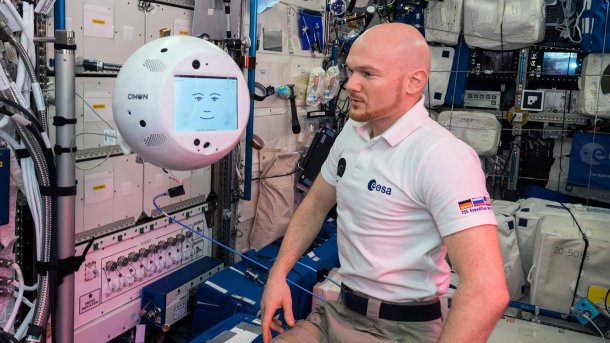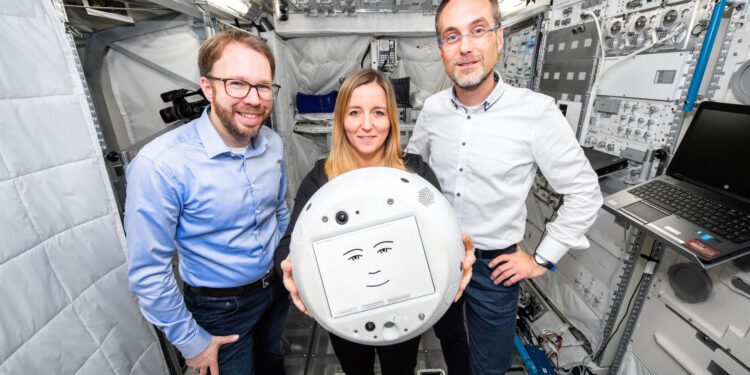The CIMON-2 robot has bits of emotional intelligence, in order to better interact with humans and respond to their emotions.
Emotional intelligence is probably one of the aspects that more differentiate humans from machines until now. The term, in fact, is so complex that it cannot even be said that all people have fully developed capabilities in this regard.
Even so, emotional intelligence is valued as one of the success factors in the professional and also, of course, personal level. And such a feature is also sought in machines. Of course, it is very difficult to achieve it. Scientists from IBM, The German Aerospace Center and Airbus they’ve worked on it, though.
The three companies are the architects of CIMON-2, a robot with emotional capabilities. This is what its creators have described. It is the second generation of a machine oriented to assist astronauts on the International Space Station (ISS). The architects of the project hope that this second version of the robot will be much more useful than the first, precisely because of the emotional component.
Among his faculties are reading experimental procedures, recording video or simply talking to astronauts. The emotional part of CIMON-2 is what will give the machine the most ability to interact with humans. CIMON-2 will understand when a person is in a good mood and he’ll talk more than usual. However, if you detect concern or frustration, you can be more cautious and cause less distraction.

Robots and emotions
CIMON-2’s capabilities are simple, but it is useful for the humans it works with. In addition, it is a step forward to enter the robots into the world of emotions.
Robtos that can express feelings have already been built. There are even machines designed to arouse certain emotions in those around you. This is the case with social robots. However, in this case it is an invariable programming. The novelty that CIMON-2 brings is its ability to detect emotions and vary their behavior depending on what is detected.
Images: DLR, Airbus









